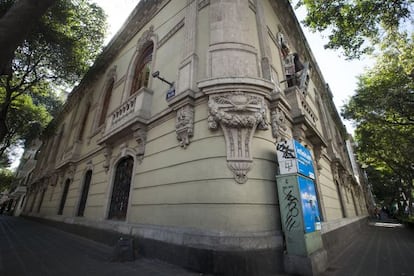New law opens fresh path to Spanish citizenship for grandchildren of exiles in the Americas
The legislation, which came into force last October, expands eligibility to the descendants of those who fled the Spanish Civil War and Franco dictatorship


Latin Americans have a wider range of options available to them to gaining Spanish nationality after that country enacted the Democratic Memory Law, which has also come to be known as the ley de nietos or “grandchildren law.”
The law, which came into effect last October, streamlines the process of obtaining a Spanish passport for the children and grandchildren of Spaniards who fled the Spanish Civil War (1936-1939) or who were forced into political exile during the dictatorship of Francisco Franco, which ended with his death in 1975.
The new law adds three new cases for eligibility on top of those laid out under the Historical Memory Law, which has been in force since December 2008. This expansion of potential applicants will have a great impact in Latin America, the destination of a large part of the Spanish diaspora over the course of the last century.
Under the Democratic Memory Law, “those born outside of Spain and with a father, mother, grandfather or grandmother who was originally Spanish and who lost or renounced Spanish nationality as a result of having suffered exile for political, ideological or belief reasons or sexual orientation and identity” will now be able to apply for a Spanish passport by providing the required documentation at the Spanish consulates in their countries of residence.
The new legislation also provides for “the sons and daughters of legal age of Spaniards whose nationality of origin was recognized by virtue of the right of option in accordance with the provisions of this law or in the seventh additional provision [of the Historical Memory Law].”
The third group who can now apply for Spanish nationality under the new legislation are the “sons and daughters born abroad to Spanish women who lost their nationality for marrying foreigners before the entry into force of the 1978 Constitution.”
The descendants of Spaniards who were forced into exile have two years (starting on October 21, 2022, when the law came into force) to present all the necessary paperwork to support their applications, although the Spanish Cabinet is considering extending this timeframe by a further year. The Democratic Memory Law considers all Spaniards who left the country between July 18, 1936 and December 31, 1955, to be exiles.
If departure from Spain took place between January 1, 1956 and December 28, 1978, applicants for Spanish nationality must provide additional documentation proving the exile status of their parents or grandparents. In this case, the requirements to do so are varied: having received a pension as an exile or by presenting certificates issued by political parties, labor unions or institutions recognized by the Spanish authorities. A passport or travel document bearing the stamp of the host country or other documentation proving income must also be provided.
One of the main differences between the Democratic Memory Law and its predecessor is that it allows generational leaps: the grandchildren of Spaniards exiled between 1936 and 1975 can initiate the process regardless of whether their parents have done so before. One of the obstacles of the Historical Memory Law was that the grandchildren of exiled Spaniards often found that their parents had already died and had not applied for citizenship. In the case of living parents, another hurdle was added under the previous legislation: they could only pass on the right to nationality to their children if the latter were under 21 years of age.
Sign up for our weekly newsletter to get more English-language news coverage from EL PAÍS USA Edition
Tu suscripción se está usando en otro dispositivo
¿Quieres añadir otro usuario a tu suscripción?
Si continúas leyendo en este dispositivo, no se podrá leer en el otro.
FlechaTu suscripción se está usando en otro dispositivo y solo puedes acceder a EL PAÍS desde un dispositivo a la vez.
Si quieres compartir tu cuenta, cambia tu suscripción a la modalidad Premium, así podrás añadir otro usuario. Cada uno accederá con su propia cuenta de email, lo que os permitirá personalizar vuestra experiencia en EL PAÍS.
¿Tienes una suscripción de empresa? Accede aquí para contratar más cuentas.
En el caso de no saber quién está usando tu cuenta, te recomendamos cambiar tu contraseña aquí.
Si decides continuar compartiendo tu cuenta, este mensaje se mostrará en tu dispositivo y en el de la otra persona que está usando tu cuenta de forma indefinida, afectando a tu experiencia de lectura. Puedes consultar aquí los términos y condiciones de la suscripción digital.








































